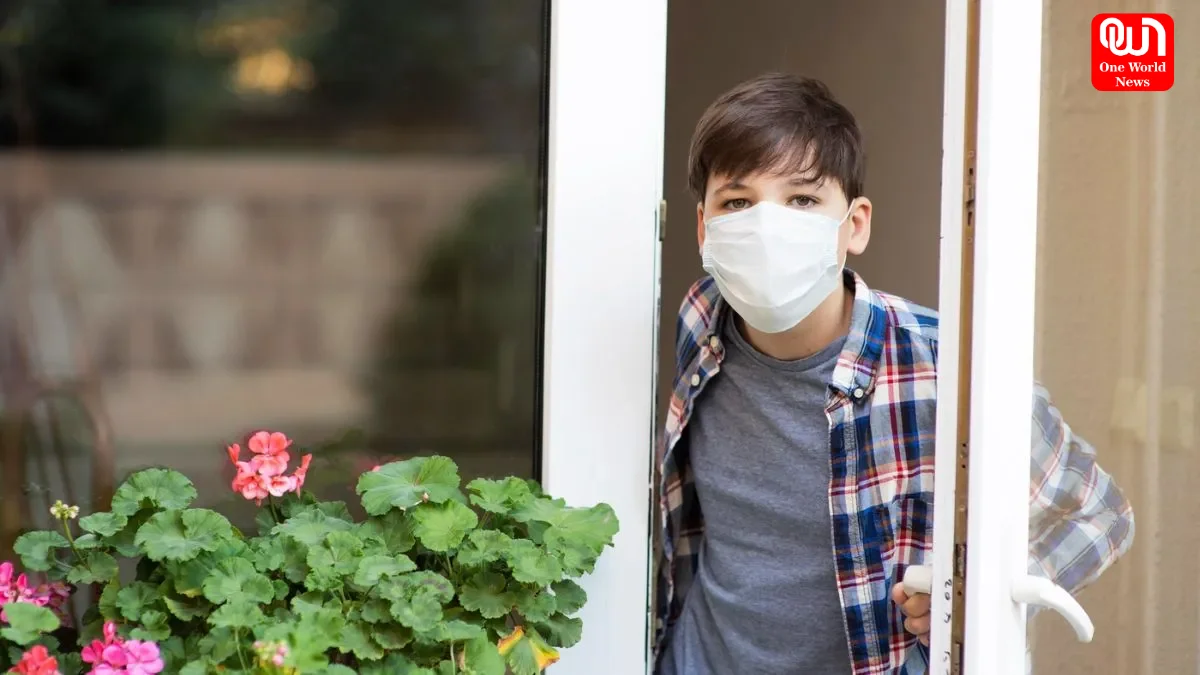5 Expert Tips To Protect Your Kids From Severe Air Pollution: A Complete Parent’s Guide
Learn essential tips to protect your kids from severe air pollution and safeguard their health with expert-backed prevention strategies for parents.
5 Expert Tips To Protect Your Kids From Severe Air Pollution: A Parent’s Guide To Safely Protect Their Kids From Air Pollution With Practical Daily Measures
Air pollution has become a major health concern for families today, especially young children who are more vulnerable than adults. Their lungs are still developing, making them more prone to respiratory problems, allergies, asthma, and long-term health issues. With rising pollution levels in many cities, parents must learn effective tips to protect your kids from severe air pollution and create safer environments for them. Understanding the risks, adopting preventive habits, and making small daily changes can go a long way in safeguarding their health.
Understanding Why Kids Are More Vulnerable
Why Children Need Extra Protection
Children breathe faster than adults and often spend more time outdoors. Their immune systems are still developing, making it harder for their bodies to fight off the harmful effects of polluted air. This makes it crucial for parents to protect their kids from air pollution, especially during periods of high smog, dust storms, or winter pollution spikes.
The Health Risks of Severe Air Pollution for Kids
Exposure to polluted air can lead to chronic cough, breathing difficulty, throat irritation, asthma, reduced lung function, and long-term respiratory illnesses. In some cases, air pollution can even impact cognitive development. Understanding these risks helps parents take proactive steps to protect their children’s health.
Tip 1: Monitor Air Quality Daily
Use Reliable AQI Apps
One of the most important tips to protect your kids from severe air pollution is to track the Air Quality Index (AQI). Parents can use apps like SAFAR, IQAir, or AirVisual to stay informed. If the AQI crosses 150, outdoor activities should be minimized, and if it exceeds 250, children should avoid going outside entirely.
Adjust Routines Based on Pollution Levels
Morning hours often have higher pollution levels. Shift outdoor playtime to midday when the air is clearer. On high-pollution days, reduce travel, keep windows closed, and make indoor exercises the norm.
Tip 2: Use Indoor Air Purifiers and Keep Indoor Air Clean
Choose HEPA Filter Air Purifiers
A good-quality HEPA air purifier can significantly reduce indoor pollutants such as dust, PM2.5 particles, pollen, and smoke. Place purifiers in your child’s bedroom and main living areas for maximum protection.
Maintain Clean Indoor Environments
Regularly vacuuming, dusting with wet cloths, and keeping shoes outside can drastically reduce indoor pollution. Plants like peace lilies or snake plants help improve indoor air quality naturally but should be used in addition to—not instead of—purifiers.
Tip 3: Strengthen Kids’ Immunity Through Healthy Habits
Nutritious Food for Pollution Defense
Good nutrition is essential to protect their kids from air pollution. Foods rich in Vitamin C, Omega-3 fatty acids, and antioxidants help strengthen the immune system. Include citrus fruits, spinach, almonds, turmeric milk, and jaggery in their diet to help their bodies fight pollutants.
Hydration and Steam Therapy
Keeping kids hydrated helps flush out toxins from the body. When pollution levels are high, giving them warm water or herbal teas can soothe the throat. Steam inhalation, when recommended by a doctor, helps clear nasal passages affected by pollution.
Tip 4: Limit Outdoor Exposure and Use Protective Gear
Mask Up — Smartly
Children above age 4 can wear N95 or KN95 masks when stepping outside in high-pollution conditions. Cloth masks are not effective against PM2.5 particles. Masks help reduce pollutant inhalation significantly and are one of the simplest tips to protect your kids from severe air pollution.
Plan Outdoor Time Wisely
Avoid high-traffic areas, industrial zones, and congested markets. Choose cleaner parks or indoor play areas on severe pollution days. Ensuring minimal outdoor exposure during peak pollution times is a practical and effective preventive measure.
Tip 5: Create a Clean Air Routine at Home
Evening Clean-Air Rituals
Pollution peaks during late evenings in many cities. Create routines such as closing windows by 5 PM, turning on purifiers, and keeping indoor spaces dust-free. Encourage kids to wash their hands and face after returning home to prevent pollutants from entering the body.
Teach Kids Clean-Air Awareness
Educating children about air pollution helps them adopt responsible habits. Teach them simple practices like covering their mouths in dusty areas, avoiding burning crackers, and keeping their surroundings clean. Awareness today builds healthy habits for the future.
read more: Guru Ghasidas Jayanti 2025: Honoring the Saint Who Preached Truth, Equality, and Humanity
Conclusion
Protecting children from pollution requires consistency, awareness, and daily preventive habits. With rising AQI levels in many urban areas, parents must stay proactive and follow expert-backed tips to protect your kids from severe air pollution. From monitoring AQI levels to using purifiers, improving nutrition, limiting outdoor exposure, and building clean-air routines, every step contributes to better respiratory health and long-term well-being. As parents and caregivers work to protect their kids from air pollution, they create a safer, healthier environment where children can breathe freely and grow without the invisible threat of polluted air.
We’re now on WhatsApp. Click to join.
Like this post?
Register at One World News to never miss out on videos, celeb interviews, and best reads.








